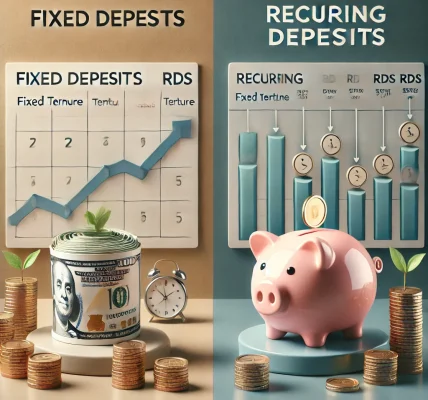Saving plans are pivotal in building a secure financial future. They not only help in accumulating wealth but also ensure that you’re prepared for unforeseen circumstances and major life milestones. This article delves into why saving plans are indispensable for achieving your financial goals and how they can set you on the path to financial freedom.
Why Are Saving Plans Important?
- Financial Discipline: Saving plans encourage regular contributions, fostering a habit of consistent saving. This disciplined approach ensures that you stay committed to your financial objectives.
- Goal Achievement: Whether it’s buying a home, funding education, or planning for retirement, saving plans act as a roadmap, guiding you towards your targets systematically.
- Risk Management: Certain saving plans come with guaranteed returns or insurance coverage, reducing financial risk and providing peace of mind.
- Wealth Accumulation: Over time, systematic savings grow through compound interest or market-linked returns, helping you build substantial wealth.
- Tax Benefits: Many saving plans offer tax advantages under laws like Section 80C, making them financially rewarding and efficient.
How Saving Plans Help in Achieving Financial Goals
- Structured Savings: Saving plans ensure that you’re setting aside money regularly, aligning your financial habits with your life goals.
- Emergency Fund Creation: By contributing to a saving plan, you can build a safety net for unexpected situations, reducing the need to rely on high-interest loans.
- Long-Term Security: Plans like Public Provident Funds (PPF) or retirement plans provide guaranteed returns, ensuring a stable income post-retirement.
- Encouraging Investments: Some saving plans, like Unit Linked Insurance Plans (ULIPs), offer a dual benefit of savings and investment, allowing your money to grow over time.
- Customizability: Saving plans cater to diverse financial needs—short-term, medium-term, or long-term—ensuring they are aligned with individual priorities.
Types of Saving Plans for Financial Goals
- Short-Term Saving Plans:
- Examples: Recurring Deposits (RD), Savings Accounts with Sweep-in Facility.
- Best For: Emergency funds, vacations, or short-term purchases.
- Medium-Term Saving Plans:
- Examples: Fixed Deposits (FD), National Savings Certificate (NSC).
- Best For: Education, weddings, or down payments.
- Long-Term Saving Plans:
- Examples: PPF, ULIPs, Retirement Savings Plans.
- Best For: Retirement, wealth creation, or legacy planning.
Benefits of Early Savings
- Power of Compounding: The earlier you start, the more you benefit from compounding, which amplifies the growth of your savings over time.
- Reduced Financial Stress: Early saving ensures you’re financially prepared for life’s uncertainties, reducing stress.
- Freedom to Take Risks: A strong financial foundation allows you to explore higher-return investments without jeopardizing your financial stability.
Tips to Maximize the Benefits of Saving Plans
- Start Early: The sooner you begin, the more time your money has to grow.
- Diversify: Spread your savings across different plans to balance risk and reward.
- Set Clear Goals: Define what you’re saving for to choose the right plan.
- Review Periodically: Assess your savings plan’s performance and adjust as needed to stay aligned with your goals.
- Leverage Tax Benefits: Opt for plans that help you save on taxes while building wealth.
Conclusion
Saving plans are essential tools for achieving financial goals. They provide the structure, security, and growth potential needed to navigate life’s financial challenges and milestones. By choosing the right plan and starting early, you can build a strong financial future, ensuring peace of mind and prosperity. Remember, every rupee saved today is a step closer to financial freedom tomorrow.




